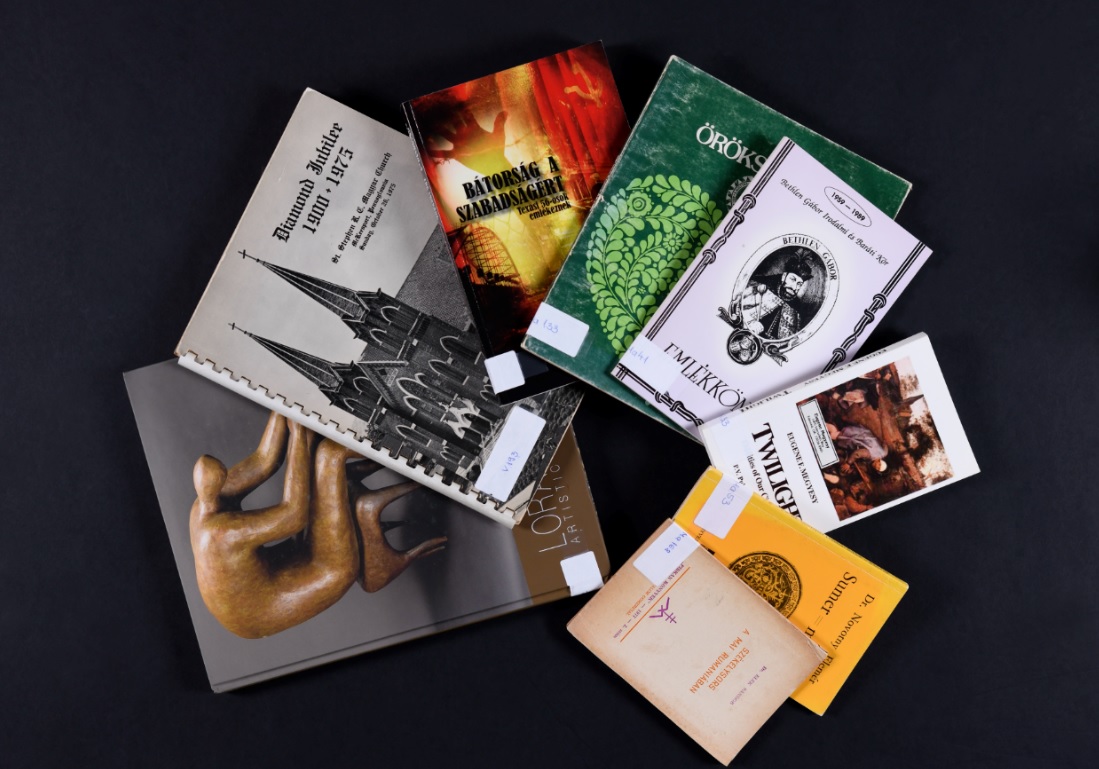
Book donation from the United States

Recently, the Vice Consulate of Hungary in Houston donated some twenty volumes to National Széchényi Library in order to increase its stock. A major part of the books received from the Vice Consulate of Hungary in Houston are hungarica published in the diaspora, to which National Széchényi Library has not had an access. The books were collected from the holdings of the Texas community, some from the library of the Cistercian abbey in Dallas, which was closed down a decade ago.
With the preservation of national culture largely in mind and in line with the objectives of Mikes Kelemen Program, the Vice Consulate of Hungary in Houston offered to send books to Budapest from its collection, which were selected by National Széchényi Library.
Mikes Kelemen Program, launched seven years ago, focuses on saving hungarica documents (library and archive materials) accumulated in the Western diaspora from destruction by placing them in public collections within and outside the borders of Hungary after repatriation. The program was launched at the request of Hungarian organizations in the diaspora in Hungarian-populated communities in North and South America and Australia.
As reported in our Hungarian-language blog series launched in June 2020, eight percent of the documents returning to Hungary are utilized in NSZL’s stock. The remaining part of shipments is offered to libraries within and outside the borders of Hungary. The special needs of collections of the Hungarians living in the Carpathian Basin have been taken into consideration, thereby helping Hungarian education and the preservation of culture across the border. Thanks to the pre-selection option, the offer from the Vice Consulate of Hungary in Houston was almost entirely included in the collection of NSZL.
The recommendation of documents accumulated by the Mikes Kelemen Program began in April 2016 with the publication of weekly selection lists via the official website of National Széchényi Library. Experience gained over the four years has made it possible to create a modern, database-based order interface that is well adapted to user needs. Partners from public collections can order documents via this interface.



